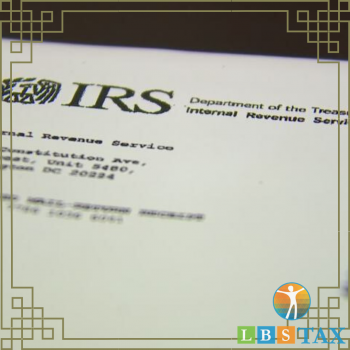Are Pay Installments on Federal Income Taxes I Owe, If I Can’t Afford to, a thing? Or should I Pay it All at Once?
Although the IRS is being slammed right now due to COVID-19, millions of Americans still owe money to the IRS in back taxes for previous years and they will increasingly find themselves unable to pay up all at once.
In this article, we walk you through IRS installment agreements and what to do if you can’t afford to pay your back taxes.
Even though paying your taxes through an installment agreement is just one of many tax relief options, you will likely have other options and might be able to settle with the IRS or even lower your amount owed. We encourage you to reach out to our firm for a tax relief consultation to determine your options here.
The IRS and Collections during Covid-19
The virus has forced a lot of things to shut down or modify how they do business, including the IRS.
Not only is the IRS busy dealing with processing their usual tax returns, the IRS was tasked with processing the stimulus payments for millions of Americans.
Making matters more complicated, they are scrambling around trying to adjust to the new filing

deadline, and a lot of their workforce is working from home- making things slower than usual.
Because of this, and due to the economic hardship millions of us are experiencing, the IRS announced its “People First Initiative”.
To ease the burden on people facing tax issues, the IRS is pursuing unprecedented actions. These new changes include issues ranging from postponing certain payments related to Installment Agreements and Offers in Compromise to collection and limiting certain enforcement actions.
Also due to this, the IRS isn’t processing paper returns right now as they are dealing with distributing coronavirus stimulus checks.
The filing deadline for your 2019 taxes is now another 3 months from the usual filing deadline, making the official deadline to file your taxes July 15th, 2020.
THE BILL COMES DUE
Despite their immediate actions, the IRS will soon flip the enforcement switch back on; come July 15th, a lot of people who made higher income in 2019 will likely owe back taxes.
At the time you file, you need to send in payment for any taxes due. Failure to pay your tax bill immediately often results in penalties and interest on the balance due after July 15th, which are not small.
If you find yourself unable to pay in full, the IRS does offers installment agreements to taxpayers who owe a balance to allow them to pay their tax burden over a period of time.
HOW IT WORKS
The IRS divides their installment plans by taxpayers who owe more than $50,000 and those with less than $50,000.
IMPORTANT: We highly recommend readers to reach out to our firm first. Our clients never have to talk to the IRS, and a properly structured installment agreement made by us, can save you money and time in the long run. You might also be eligible for other relief programs or get your penalties and interest forgiven. Reach out to our firm today for a consultation here.

Less Than $50,000
Taxpayers owing less than $50,000 may request an installment agreement via the IRS website, by mailing the Form 9465-FS Installment Agreement Request or by phone at 1-800-829-1040. You will need to provide your Social Security number, date of birth, caller ID from your recent IRS notice, PIN number or AGI, bank address, employer address and the proposed monthly payment amount.
Greater Than $50,000
Taxpayers owing more than $50,000 may request an installment agreement by filling out form 433-F Collection Information Statement. Filling out the form requires information regarding your bank accounts, lines of credit, real estate, total number of dependents, assets, credit cards, wages, non-wage household income, monthly living expenses, down payment amount and proposed monthly payment.
The Agreement Details
Installment agreements require a minimum monthly payment of $25. The IRS requests that you include your name, address, Social Security number, phone, tax year and return number on each payment issued. Installment lengths vary from 120 days to 60 months depending on your ability to repay.
The Agreement Fees
Installment agreements that take more than 120 days require a setup fee. The IRS charges a setup fee for direct debit agreement or for a standard agreement. You may get a decreased fee if you meet their low income guidelines. The IRS charges a reinstatement fee if you don’t pay your bill and your installment agreement goes into default.
Our firm specializes in tax resolution. We also serve clients virtually so don’t hesitate to reach out. If you want an expert tax resolution specialist who knows how to navigate the IRS maze, reach out to our firm and we’ll schedule a no-obligation confidential consultation to explain your options to permanently resolve your tax problem. Reach us here.
